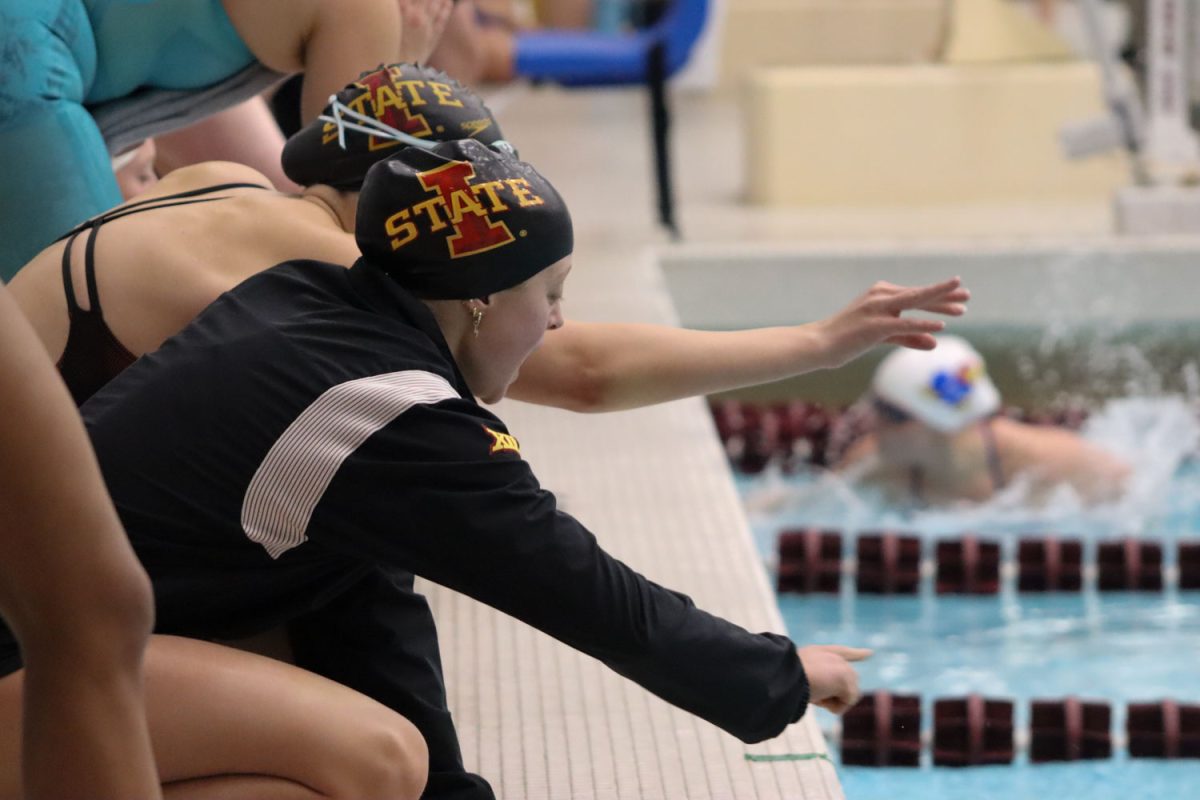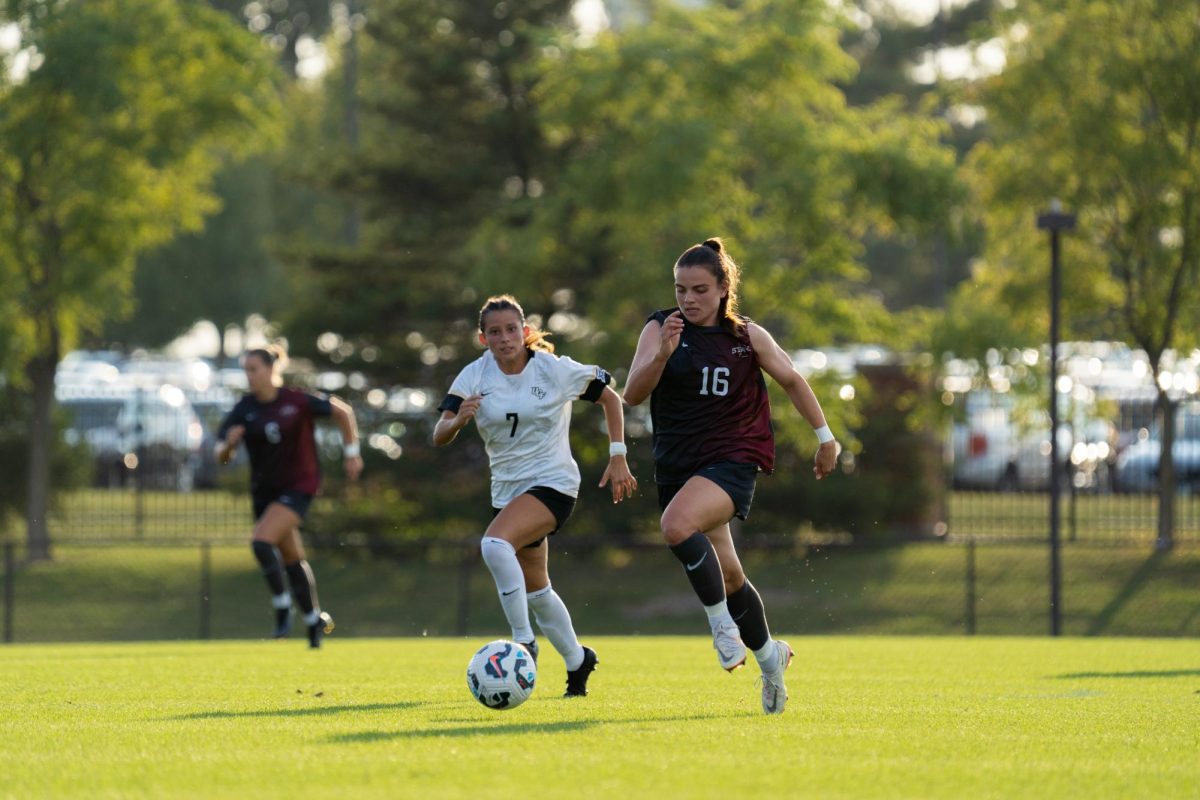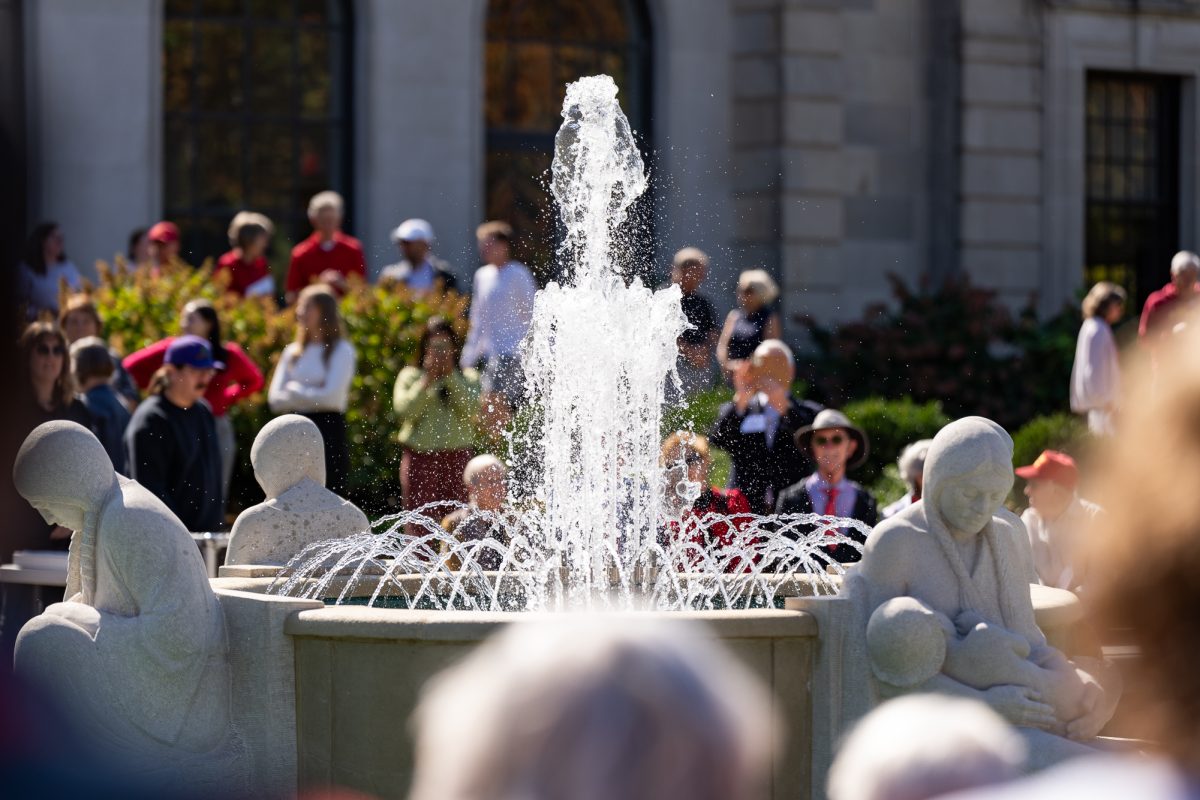Vet med students learn acupuncture
September 30, 1999
Twenty-one veterinary students recently returned from a three-week preceptorship in Beijing, where they studied traditional Chinese veterinary medicine at the China Agricultural University.
The trip was the first of its kind for Iowa State veterinary students and was new for the Beijing instructors as well.
“They created the workshop for our large group,” said Walter Hsu, professor of veterinary medicine.
Hsu was the trip’s coordinator and the students’ interpreter. The trip, he said, was designed for the students to “get their feet wet in acupuncture.”
Jeff Nelson, senior in veterinary medicine, chose the preceptorship in Beijing because he developed an interest in acupuncture during his studies. “I wanted to see it to believe it,” he said.
Acupuncture, a practice that has existed for thousands of years in China, involves applying needles — hot, electrically charged or at room temperature — to any of a number of acupoints in a human or an animal to relieve an ailment.
While the practice of acupuncture in China usually is applied to horses, acupuncture in the United States is more prevalent among small, companion animals, Hsu said.
Nelson said he is optimistic about the future of the treatment.
“It will probably become more prevalent as the demand increases and as veterinarians in the United States are introduced to it,” he said.
In preparation, the students took five lessons in Mandarin, the language they would encounter on their adventure. They also attended a mini-workshop on acupuncture presented by Dr. Karen Kline, an ISU veterinary neurologist who is board-certified by the International Veterinary Acupuncture Society.
Studying traditional Chinese veterinary medicine included the art of “moxibustion,” as well as acupuncture.
In moxibustion, herbs are burned on the site of an ailment in an attempt to make the herb penetrate through the skin into the body. Hsu said the process is similar to a heat pack and that the animals are not hurt in the process.
“We placed needles in horses and dogs,” Nelson said. And, referring to the process of moxibustion, Nelson jested, “We put a couple of horses ablaze, too.”
Hsu is looking forward to taking another group next May.
“There was great success in this trip,” he said. “There is no doubt we will go again.”






